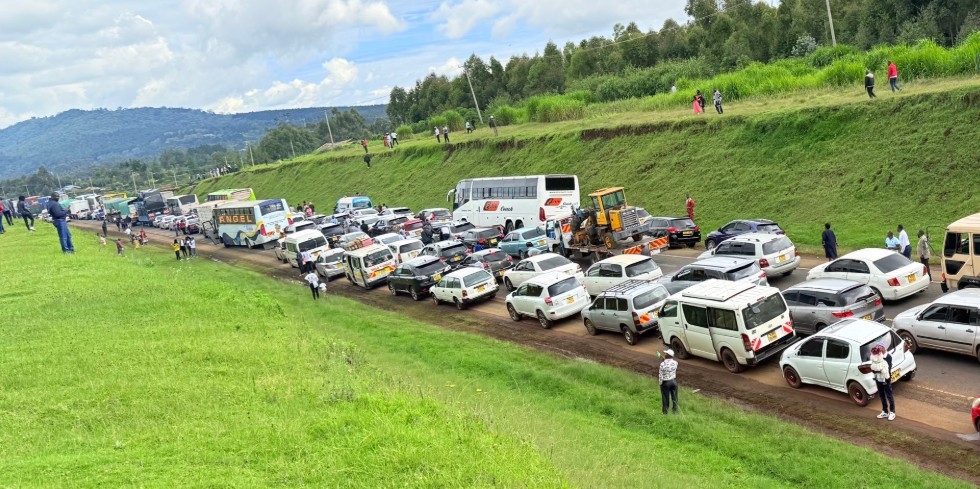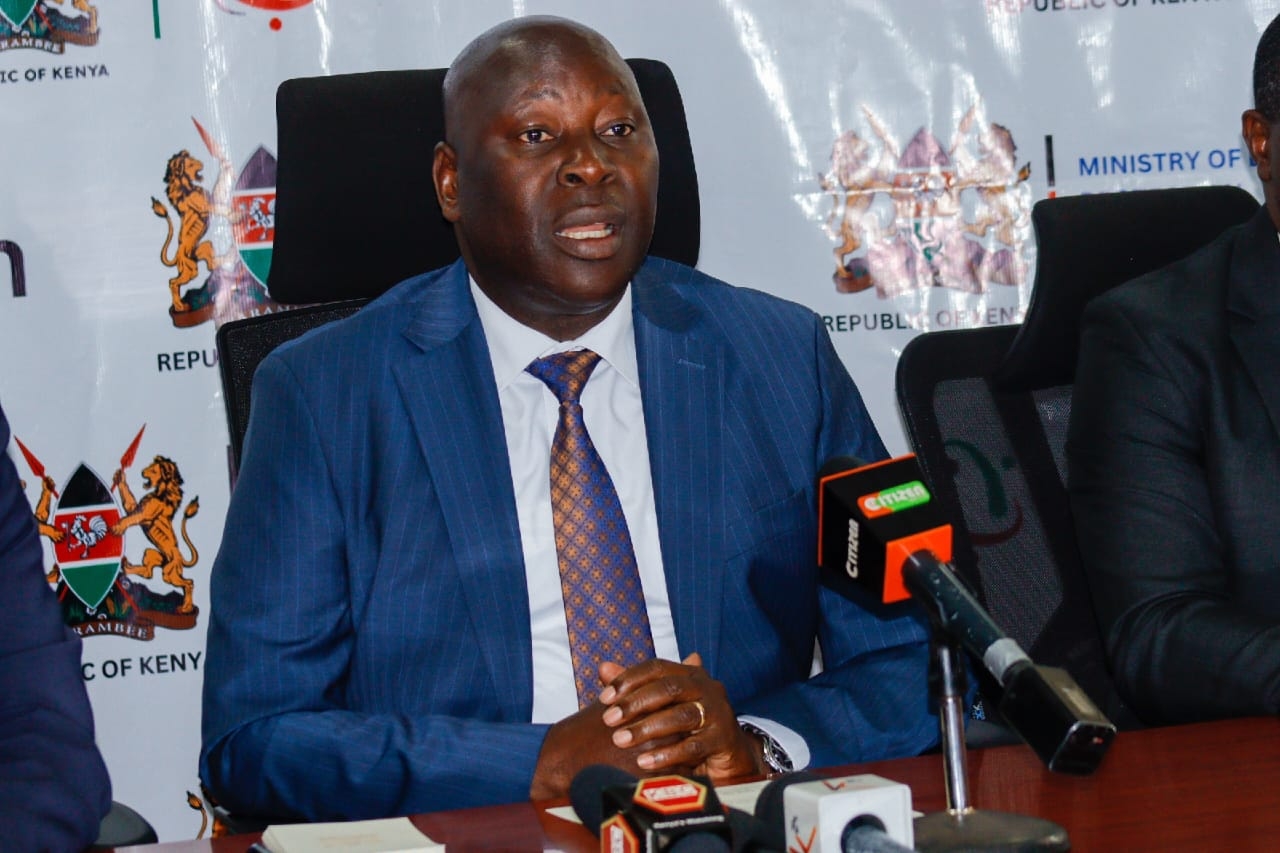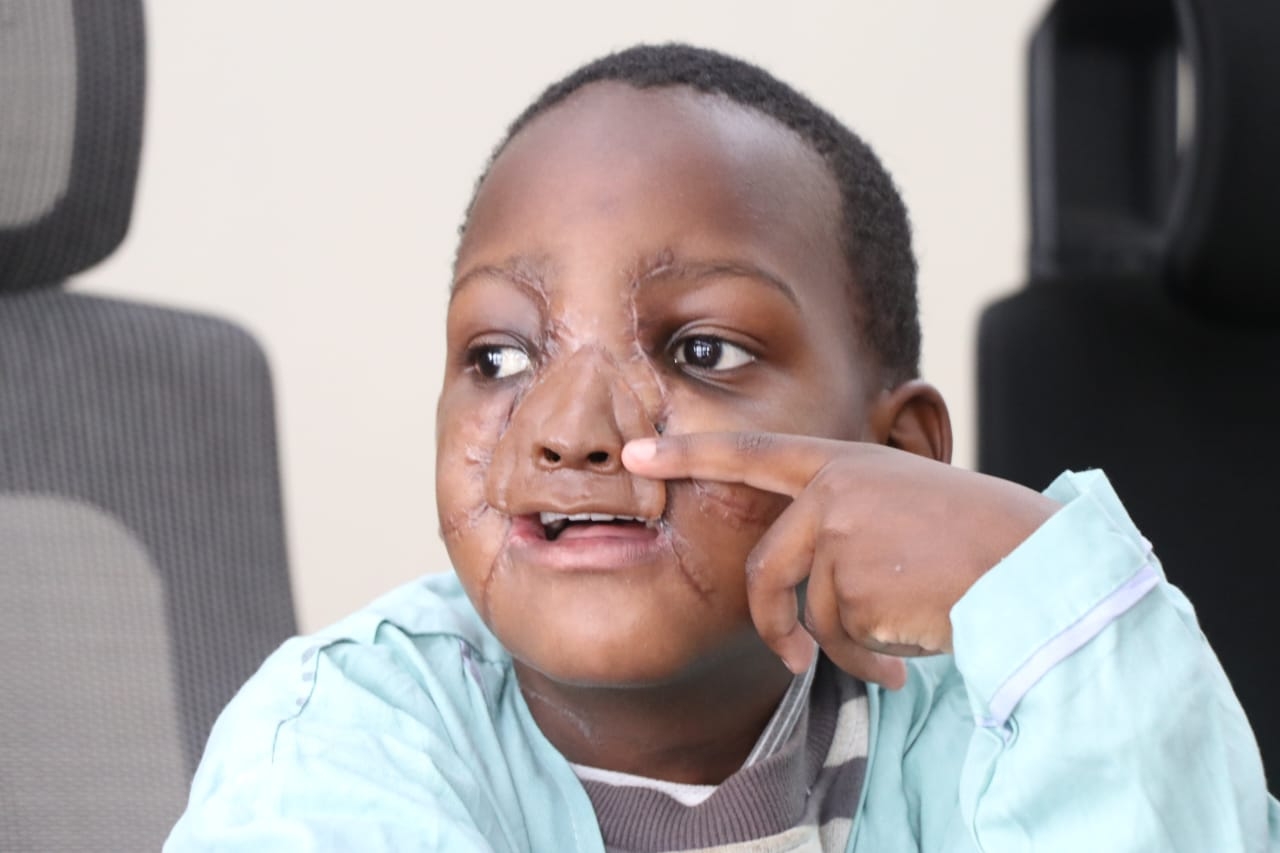Grieving members of a Ugenya family in Siaya cannot believe that they can't ferry the body of their loved one from Kibwezi in Makueni county to their rural home for burial.
The family arrived in Kibwezi on Monday morning to collect the remains of their relative who died in unclear circumstances on Saturday night.
The return journey was scheduled for Tuesday morning, but they could not proceed following the executive order banning the movement of people in and out of Nairobi.
President Uhuru Kenyatta on Monday ordered the cessation of movement in and out of Nairobi from 7pm to contain the spread of coronavirus.
That order means the family cannot ferry the body home because they cannot pass through the Nairobi metropolitan area.
Another family, also from Siaya, is in a similar quagmire.
Priscillah Anyango and eight others travelled from Alego to Nairobi to collect the body of her nephew on Monday.
They hoped to be back home by Tuesday evening for burial on Wednesday morning.
The mortuary had cleared the body for collection at th time Uhuru was announcing the cessation of movement.
"We were initially advised that the body can move but with only one person," said Priscilla. None of them is a city dweller.
Yesterday, the family of Eunice, a 35-year-old accountant who was killed in a matatu accident last Friday on Forest Road in Nairobi, was discussing how to conduct her funeral in Murang'a.
“Since this is a police case, we could not immediately bury her due to legal requirements like postmortem,” her elder sister, Naomi, said.
The police said they do not have any documentation or permit to give them to allow movement, but encouraged them to try their luck at the roadblock near Chania Bridge.
Like these mourning families, many more Kenyans have been thrown into confusion with travel plans halted following the presidential directive.
The ban on in-bound and out-bound movements affecting four counties seen as coronavirus hotspots has triggered chaos leaving many Kenyans stranded.
Kwale, Mombasa and Kilifi are the other counties affected by the cessation of movement.
Police erected roadblocks along major roads to cordon off the Nairobi Metropolitan area with more deployment expected to be rolled out to cover the coastal strip starting Wednesday evening.
Some MPs among them Khatib Mwashetani (Lunga Lunga), Caleb Kositany (Soy), and Kisumu West’s Olago Aluoch said they had been stuck upcountry and cannot travel to Nairobi because of the order.
On Monday night, there were roadblocks at Athi River, Katani Road near Mlolongo, at Kalulu on Kangundo Road and another one at Blue Post Chania Bridge to restrict movement in and out of Nairobi.
There was also another roadblock on Garissa Road at BAT junction to restrict movement from the Northeastern and Eastern parts of the country into and out of the city.
Those trying to access the city from Rift Valley and Upper Kiambu were stopped at Uplands. Another roadblock was at Rironi.
There were more roadblocks within the Nairobi Metropolitan in Ngong, Kiserian, Isinya and Ting'ang' a with thousands of drivers and conductors who directly depend on long-distance vehicles set to feel the heat.
Some private motorists en route to Nairobi were blocked from accessing the capital city and passengers on long-distance buses forced to make return journeys as police stepped up vigilance.
Passengers were forced to pay double fares to be returned to their points of origin irrespective of the distance already covered and the proximity to the capital city.
Worst hit were employees who had travelled upcountry and were expected back into the city to resume work as well as rural dwellers visiting loved ones in towns in the four counties.
The ban means that Kenyans caught up in the coronavirus fight crossfire will have to suspend their travel plans until after the 21-day order lapses.
Government spokesman Cyrus Oguna told the Star that Kenyans outside their residences or places of work and who have been affected would have to comply with the directives.
“There are no exceptions. Those who were keen had seen this long coming. People should make arrangements to stay where they are and avoid any movements into the restricted areas,” Oguna said.
Regional commissioners across the eight former provinces have vowed to strengthen the enforcement of the restriction of movement order by the President to prevent breaches and keep citizens safe.
The restriction of movement order came into effect on Monday, April 6, at 7pm in Nairobi. Restrictions in the other regions start on Wednesday at 7pm.
Uhuru said that majority of the country's 158 confirmed Covid-19 cases were residents of Nairobi and the coastal counties of Kilifi, Kwale and Mombasa.
On Tuesday, Health CS Mutahi Kagwe announced the confirmation of 14 more positive cases, bringing Kenya's tally to 172.
The new restrictions on movement which do not, however, include those carrying cargo and gazetted essential service providers, are intended to prevent the spread of the virus to other parts of the country.
Others worst hit by the cessation of movement include tens of thousands of jobless Kenyans who had already lost jobs due to the Covid-19 impact and had planned to travel home.
“I used to work in a small hotel in Nairobi's central business district which was closed. I had planned to travel home on Wednesday because I have no job to sustain my stay in Nairobi. Where am I going to stay and who is going to feed me?” Paul Ouma asked.
Ouma, 37, said he was frustrated and faulted the President for rushing the decision to ban movement in and out of Nairobi.
“At least we should have been given a few days to prepare before locking us here in Nairobi where life is very expensive,” Ouma told the Star.
John Nabiswa said his life had been turned upside down following the restrictions.
The Lavington Security Services worker had travelled to his Busia home last Thursday to celebrate the birth of his firstborn and was due to report to work in Nairobi on Wednesday.
“I don't know what to say. I think I have just lost my job like that. We work on contract and you are paid for the days worked,” Nabiswa told the Star, capturing the impact of the President's order.
Nabiswa now says he would engage his employer over the phone to see if the company can draw an understanding of the situation and agree on working terms.
Edited by Peter Obuya












